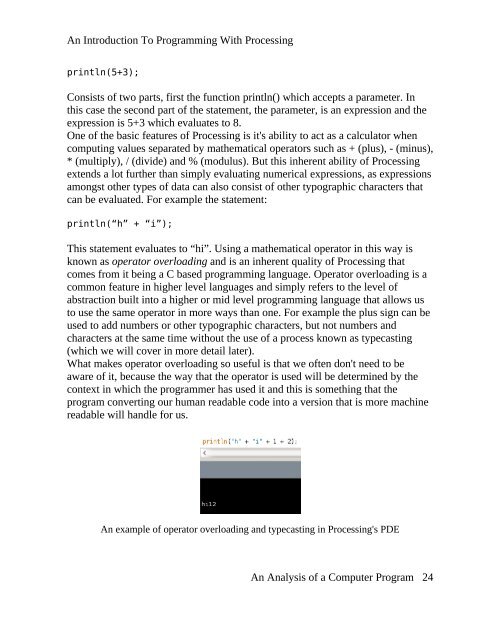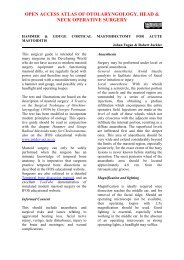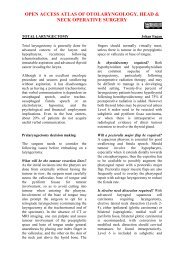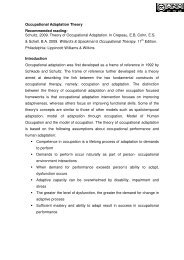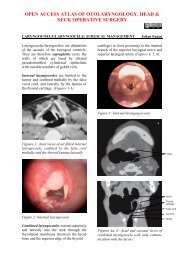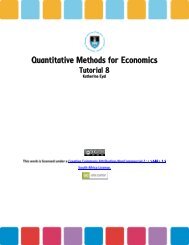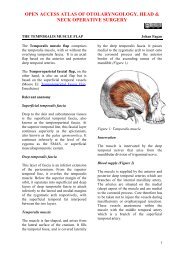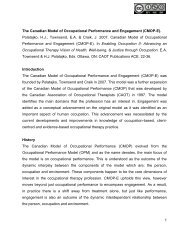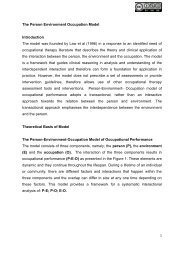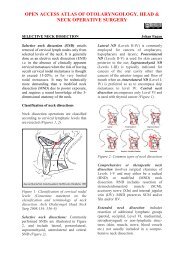Hello Processing - Vula
Hello Processing - Vula
Hello Processing - Vula
You also want an ePaper? Increase the reach of your titles
YUMPU automatically turns print PDFs into web optimized ePapers that Google loves.
An Introduction To Programming With <strong>Processing</strong><br />
println(5+3);<br />
Consists of two parts, first the function println() which accepts a parameter. In<br />
this case the second part of the statement, the parameter, is an expression and the<br />
expression is 5+3 which evaluates to 8.<br />
One of the basic features of <strong>Processing</strong> is it's ability to act as a calculator when<br />
computing values separated by mathematical operators such as + (plus), - (minus),<br />
* (multiply), / (divide) and % (modulus). But this inherent ability of <strong>Processing</strong><br />
extends a lot further than simply evaluating numerical expressions, as expressions<br />
amongst other types of data can also consist of other typographic characters that<br />
can be evaluated. For example the statement:<br />
println(“h” + “i”);<br />
This statement evaluates to “hi”. Using a mathematical operator in this way is<br />
known as operator overloading and is an inherent quality of <strong>Processing</strong> that<br />
comes from it being a C based programming language. Operator overloading is a<br />
common feature in higher level languages and simply refers to the level of<br />
abstraction built into a higher or mid level programming language that allows us<br />
to use the same operator in more ways than one. For example the plus sign can be<br />
used to add numbers or other typographic characters, but not numbers and<br />
characters at the same time without the use of a process known as typecasting<br />
(which we will cover in more detail later).<br />
What makes operator overloading so useful is that we often don't need to be<br />
aware of it, because the way that the operator is used will be determined by the<br />
context in which the programmer has used it and this is something that the<br />
program converting our human readable code into a version that is more machine<br />
readable will handle for us.<br />
An example of operator overloading and typecasting in <strong>Processing</strong>'s PDE<br />
An Analysis of a Computer Program 24


